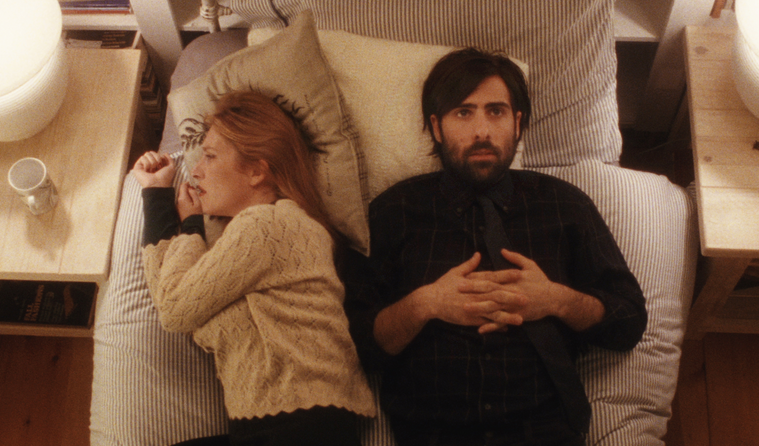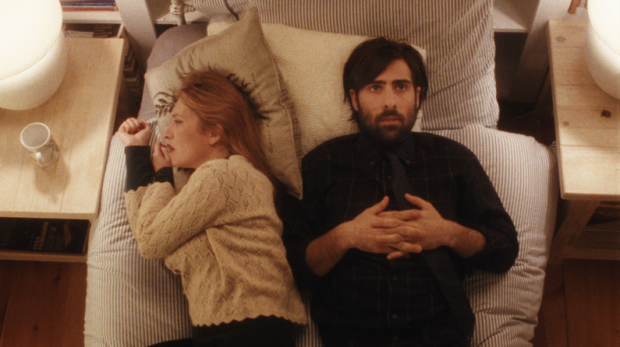
It was only a year ago when Alex Ross Perry‘s name was mentioned primarily among a small, supportive group of cinephiles, this contingent visibly excited by his funny, raw, and bitter road-trip comedy The Color Wheel. (Even fewer have seen Impolex, a dream-like feature debut from 2009.) That film — seemingly shot for nothing, and on grainy 16mm — is like few others of its ilk, yet received little attention when granted a theatrical release. If there’s any justice in this world, though, notices will soon expand greatly with the release of his third and best picture, Listen Up Philip.
It doesn’t hurt that Perry is now working with his most-prolific cast — Jason Schwartzman, Elisabeth Moss, Jonathan Pryce, and Krysten Ritter among them — receiving the largest theatrical release of his career, and earned a few major festival turns (Sundance and the New York Film Festival among them); better yet that the work is bitingly funny and startlingly relatable, “unlikable” characters or not. The writer-director, ever a strongly opinionated sort, proved a fine interview subject: intelligent, open, and, at the age of 30, with a wealth of experience behind him.
The Film Stage: You’ve made three films thus far, all of which have had somewhat unusual journeys to the screen: they’ll premiere, but then take several months or a couple of years to reach theatrical distribution. How does it feel to take that trip? Is it always strange, or have you become somewhat used to this?
Alex Ross Perry: Well, you know, it’s not that strange, because it’s all I know — as you point out. What’s strange is making a movie that the world premiere of is sold out, and there’s 200 people waiting in line that don’t get in. That was a very bizarre experience to have the third time I make a film. Not that Listen Up Philip‘s path is particularly strange. We premiered at Sundance, shortly thereafter knew we were playing at the New York Film Festival, and, after that, basically made a decision that the movie would not be screened in America until the fall — for distribution reasons, and also because it would make more sense for the New York premiere. But, you know, it’s just that everything has its own path, and that’s what’s interesting to me about having three films that I can compare my own experiences to, and I can look at my friends. It’s pointless to compare anything to anything else.
Even looking at Color Wheel and Listen Up Philip, they’re as different as night and day. It’s pointless to say, “Yeah, a guy I know got this and I didn’t,” because I could say, “Boy, my friend has this movie and it got such an easy pass. It has ‘this’ and ‘that.’” But, yeah, you have this movie that premiered at the New York Film Festival, because everyone has something different on every single film, and I think the more I remember that that’s just the way things are, the easier it is to not really be that confused about why things are different every time, for every film, for everybody.
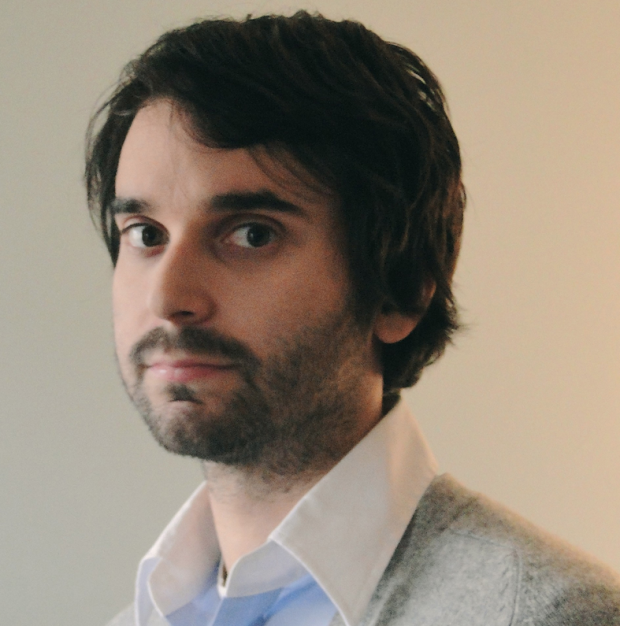 As you go along the press tour, do things change much? Maybe now that people know more about the film? Is going into this now, in October, like a regression to January?
As you go along the press tour, do things change much? Maybe now that people know more about the film? Is going into this now, in October, like a regression to January?
Well, it depends. You know, there are always going to be the “what was your inspiration for this film / talk about how you got Jason Schwartzman” questions. And those are fine, because everybody’s going to be asking that, because they don’t know the answer. That was true when we did interviews before the movie had premiered, and it’s true when doing an interview with somebody who’s seen it twice and is talking to me. What is fun is something like this conversation. Your first question is, “Compare the arc of your three movies to each other.” Like, that’s an engaging question, and it’s always fun to kind of find the interviews — one in three; one in five, maybe — where the conversation is less about, “How did you make Listen Up Philip” and more about, “Let’s talk about independent cinema and the way it responds to itself as a moving organism that is changing entirely, so quickly, that no one can ever catch up with it, where the rules are always changing.”
But that’s just the difference, now, between a film that is a totally unknown entity at Sundance — which it was with everything that’s world-premiering, because who the hell knows? — and, now, nine months later, we’re in-between. Nobody’s seen the film. It’s not like we’re at 30 festivals, regional and otherwise, and everybody has an opinion on it. There is an “opinion” on the film set in stone at Sundance — which, thankfully and luckily, was “this film’s quite good” and “it’s full of great performances” and “we should be talking about this.” Then the movie goes away for eight months. Then, when it comes back, there’s this innate part of the conversation: “Hey, how does it feel to have made a film that’s well-received?” Whereas, at Sundance, they’re preparing the questions before you get your Variety review and New York Times coverage, etc.
Here’s something that I think springs from both questions I’ve asked: is there anything you’ve noticed about selling your movie that’s different? Do you feel taken aback by it?
I wouldn’t say I’ve been “taken aback by it.” Again, every movie’s different. Now, The Color Wheel is this small, scrappy movie that barely stands a chance in this world — like a sick cat born into a breeding farm for healthy animals. The most I can hope is to get out there and be the best I can be. In the case of a film I myself was in, my presence at a Q & A or at a festival is a very strong continuation of whatever experience the people have just had, so it was important to do everything you could for that. Many of my friends would have the same experience of being a traveling salesman for their own cheap wear. But then you have a film like Listen Up Philip, where I know, without a doubt, that there are some people out there who get excited about the director of a film, engaging in an interview or a Q & A.
But when you’ve got actors at the level that this movie has to have, people want to do an interview with Jason Schwartzman and Elisabeth Moss. If I’m part of the packaged deal, great; if not, there are those people are going to want to pay more attention to. So it’s actually quite liberating on this one, to be able to be a little more invisible in the process, look at my press scheduled and see “website that likes director and cinema”; then I look at Jason’s schedule, and he has twice as many interviews as I do, because that’s the benefit of making a movie with somebody like that. I get to make the movie and be the maker, then the actor knows what they’re signing up to be involved with in getting the word out on these films.
This itself leads to a question I’d had in mind: were you relieved that acting was off your plate, following The Color Wheel and your planned HBO series, The Traditions?
Very, very much so, to be honest. You know, part of that is because… there are a lot of people, great filmmakers we love, including real, all-time heroes like Cassavetes or Woody Allen, of course. They can do both excellently. Husbands suffers not at all, not even a little bit, from Cassavetes being in front of the camera; Opening Night suffers not at all from his being in front of the camera. He’s more talented than anybody else, almost, in the history of cinema, so he can do both with equal aplomb. I’m not nearly at that level, and I would rather sort of sit back in a chair and watch the scene come together.
So when I looked at The Color Wheel and I see what the result of that film is — and, editing The Traditions, I see that has its own rhythm — and my favorite scenes in both are scenes that I’m not in. When I’m editing those, I’m thinking, “Yeah, of course. Because I can just sit back and be in front of the controller here. I don’t have to be in front of a camera, learning lines, and I don’t have to be directing the scene from in front of the camera.” And it becomes much more liberating to function at 100% on one regard — which is directing actors and directing a camera. For me, the results speak for themselves, and it’s something that I’m much happier to be focusing my energies on. Especially when we’re getting actors that are so talented and so exciting to watch, the idea that I could possibly do what they do is just laughable.
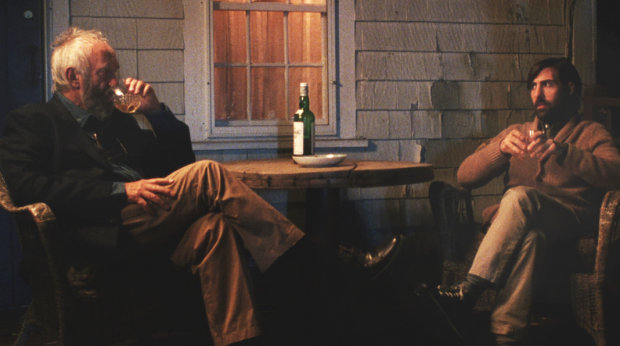
I have to ask: when did you write the screenplay for Listen Up Philip?
The Color Wheel was at festivals in 2011, and I was very busy in the spring, then I had a little bit of a gap in July, which is when I think my ideas started getting put down. Then I went to Locarno with it in August. Between early August of Locarno and the end of September, when I basically had all of October and into November, I sat down and did a lot of writing. I then chipped away at it when was traveling to some festivals. Then when the festival year of Color Wheel ended, about the first week of December, I made it a goal to have a finished draft of it by January 1, 2012, which I did.
Did the subsequent development then grow out of The Traditions? After it had been passed over, did you find an impetus to jump into Philip as soon as you could?
It was already very much up and running at that time. My first conversation… we had basically picked our start date for Listen Up Philip in February of 2013, and my initial engagement with the agency and the actors about the project started in February, continued through May and June, and we were always saying, “September, September, September.” All this time, I was editing The Traditions very aggressively. Jason and Elisabeth were already attached to the film in June of 2013, when I turned in my final edit and was told that would be the end of the road for that project. So I basically had a week off before we started production on Listen Up Philip. But it was 100% about to happen, no matter what.
News of this film was heavily attached to notice of the producing team, including Ain’t Them Bodies Saints director David Lowery. What is your relationship like with producers? I saw something interesting, in which your editor, Robert Greene, posted something on Instagram regarding producer’s notes. Can you talk about developing a film with their assistance?
Well, this is a fun thing to have learned, because I’d never worked with anybody like that before. As I was saying, we made our approach to agencies and actors in February of that year, which was about a month after Ain’t Them Bodies Saints had premiered at Sundance. When those guys were in New York editing that film, from September to December of 2012, we were already sitting down and talking about it. At that point, those guys of Sailor Bears had already partnered with our New York producers at Washington Square Films, and it became a really interesting lesson in how much it matters whose name is attached as a producer, when it lands at an agency, as much as when it lands in an actor’s email.
I knew James [M. Johnston] and David from being vegans at film festivals, because taking Color Wheel at those festivals made me ask, “Where is there good vegan food in this city”; I’d say, “Hey, that guy over there is a vegan and he was asking the same question,” so I became friends with those guys. Every time we were at a festival we’d be eating together two or three times a day. Having a script for an indie movie land at the time these guys have an indie movie with great actors that just premiered at Sundance was a hugely instrumental part of getting this film recognized in a way that clearly was necessary for anybody to trust the film as a project that, at the time, was just a script.
It’s fun to see that, and we were very lucky. Those guys, who’d come out of Ain’t Them Bodies Saints, could’ve done anything — they could’ve gone in any direction. They could’ve been doing nothing but fostering Texas filmmakers, they could’ve been doing nothing but photography things, but they put that credit to this project, and that got the project the recognition that it needed, in order to reach the actors that this film was in need of. Then it was just a tremendously valuable experience, then we’re making a film in New York City, which I’ve never done, because both of my earlier, micro-budget films were out of town.
Our other producers, Washington Square Films, they actually know how to put that together in New York, which nobody else does. They know how to get interviews with ADs, how to pick the right New York-based location manage and the right PA, someone who actually understood how to make a movie in New York. That was valuable for this New York movie, so it’s just learning that every producer brings something different to every film. If we were making this movie in Miami, then a New York production company would’ve been useless; we would’ve needed a Florida production company. So it’s different. But it’s just really interesting to see what each draw ends up being and how much value person A vs. person B can bring to each stage to the film.

That was a great answer, so you’ll have to pardon me for bringing up something that’s no doubt been raised before: Philip Roth, who’s been a great influence on seemingly everything you’ve done — excepting Impolex, which is rooted in Pynchon. Do you get tired of people raising this comparison? Or is it consistently flattering?
Well, I certainly set myself up for it. It’d be callous to open up that door and get angry with people who walk through it, and I’m happy to talk about it, because who the hell else talks so much about literature these days? So it’s pretty cool to be a filmmaker who does interviews and gets to talk about fiction, novels — which, in 2014, are not part of the cultural discourse in the way that they have been for every other previous period of time, up until all our minds were all rotted by technology. So not only do I enjoy it — because it’s a fun thing to talk about, something I love, and something to take seriously — but, a) if people are telling me that the comparison is earned, and they feel the spirit of this work that I love and admire in my films, then great — there’s nothing that feels better than honestly earning comparisons to the work of heroes.
And b) if there’s ten people out there who see the film and respond to it — basically whatever version of me when I was a teenager is out there right now and they discover this film — and they do what I did when I discovered my favorite independent films, which was go out and read a bunch of interviews with a bunch of directors — some 15-, 16-year-old nerd watching movies in his parents’ basement — and says, “Wow, this guy made this movie that I like and talks about this author a lot. I should go get one of his works.” This is what I would’ve done. Then it was all worth it.
You’ll be happy to know a friend of mine watched The Color Wheel, read interviews with you, and, following that, decided to check out Portnoy’s Complaint from the college library.
Great. See? Then it’s all worth it.
Do you see this as an opportunity to cherry-pick your favorite materials of an author? It was fun noticing small components of Roth novels that made their way into Philip, be it characters or situations. Yvette, for instance, reminds me quite a bit of Delphine Roux from The Human Stain.
I mean, yeah, that’s the fun of just doing your version of something. If you’re trying to adapt a novel, you have your blueprint right there in front of you, and you can’t adapt one novel, then take something from another novel by the same author. If you’re just being inspired by the spirit of an entire body of work and you say, “Boy, you know, I really love this scene. I love this relationship between these young lovers, and this book’s from 1973. I love the way there’s a French character in this book. That’s interesting to me.” I had this interaction with French people once when I was at a film festival, and there’s a cultural difference I would love to explore. I’m going to sort of see where that idea gets me.
I find it very comforting and very liberating to be able to be inspired by an entire body of work instead of being inspired by any little moment in any one of almost three-dozen books. That just sort of strikes a chord, filling in every little gap with my own experiences and thoughts and feelings — creating something that’s sort of indebted to a hero of mine, and then organically throwing in parts of me. Which is a lot more fun than saying “Listen Up Philip is Husbands & Wives meets We Won’t Grow Old Together.” That’s boring. You can watch both those movies in four hours, then watch Listen Up Philip and say, “Yeah, I guess I see it.” Or I could say, “It’s inspired by these twenty-five Philip Roth novels.” It’ll take you a year-and-a-half to read them all. At the end of it, then you’ll get it. That’s a little more interesting to me.
Another friend saw a bit of that book’s final passage at this film’s end. Did that specific thing come up when writing?
The final passage of The Human Stain? Well, I mean, I was a lot closer to having read it when I wrote the movie than I am now, so I don’t really remember the exact, final passage of it, but I love the book. It’s entirely likely that I was reading that book when I was writing the movie, and there’s something in there that seeped in — but, again, I don’t want to go back to the book and take things out. I want to put them on a shelf and then, two years later, be thinking about it, and kind of see what I remember. And then, if somebody points out, “Hey, this is just like that,” I’ll look at it and I’ll probably say, “Hmm, you’re right. I guess this is like that.” But it was just sort of inside me.
Then I’d like to coincide what you’re talking about with your upcoming film, Queen of Earth. Do you have particular literary influences on that film?
It’s never going to not be a relevant and alive part of my process at this point. It’s just too much a part of my understanding of narrative and writing for those influences to not be present. Unlike my other films, Queen of Earth does not have a book or a few books from one author that I could point to and say, “This is really what I was reading when this project became real in my brain.” However, around the time of Listen Up Philip, Lizzy and I were talking a lot about Edith Wharton, who she is a fan of, and these sort of stories about women in the throes of self-made torment. And I think if there was any supplemental reading for that film, we’ll have to see when we finish it — what it really shaped into.
I think I definitely was going through a little bit of an Edith Wharton phase recently, her work and her depiction of women struggling at the crossroads of one bad decision and another bad decision. It is very interesting that you can compile a scene from the early 1900s and do it in 2014. There are always interesting stories to tell about women who are suffering, and I think this film inches towards that more than anything else. But, you know, this one sort of grew out of personal ideas and cinema in-tandem with whatever I was reading at the time. It definitely is a little bit different than the way I approach the other films, which makes it fun.
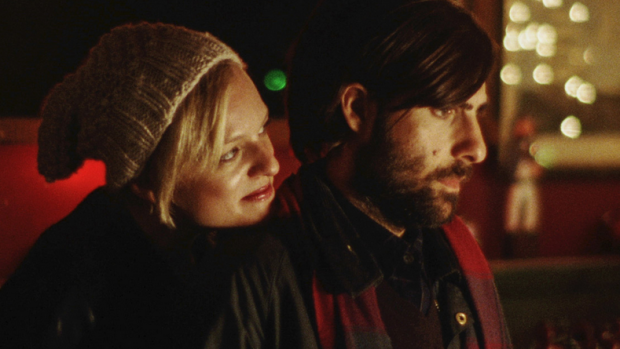
Listen Up Philip will begin a limited release on October 17 and hit iTunes on October 21.

